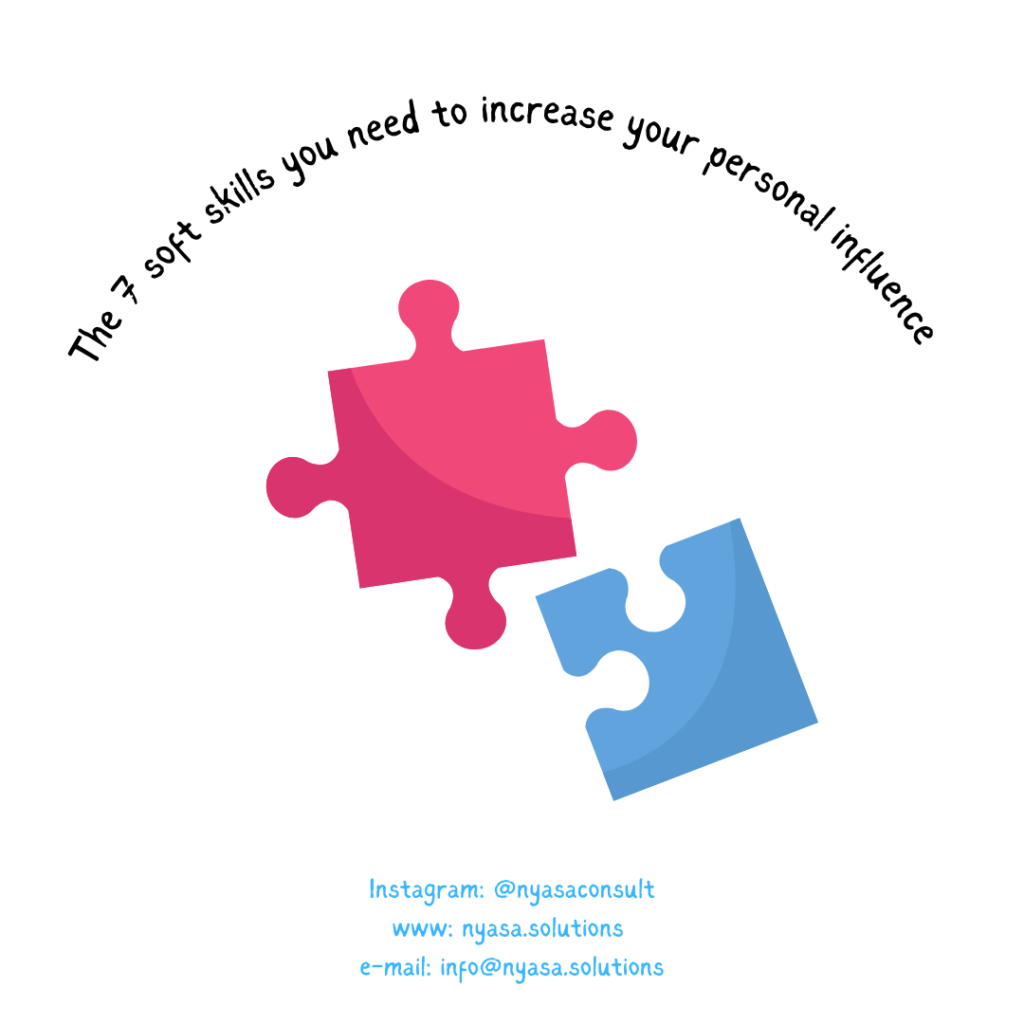The 7 soft skills you need to increase your personal influence.
You might be doing everything to perform well in your work or business; both at the start of your career, but also if you already have been working for a couple of years in a row. To keep yourself up to date with the developments around you and to keep up with your professional skills, you might be investing in your technical skill growth through e.g., following (online) seminars, taking courses, and so on. However, just being technically strong is not enough, you also need soft skills that give you hard results in the long run.
You are only successful as a professional when you have excellent soft skills in addition to the professional know-how; skills that you mainly show in relation to other people and skills that give shape and context to people’s attitudes and behavior toward you. Thanks to these professional skills, you can increase your personal influence.
By investing in personal development/soft skills, you can achieve the desired results with less effort, faster, and more effectively.
The 7 skills as factors for success:
- Communication skills
Communication is central to not only our lives but especially to our careers (be it employment or business). In our day-to-day lives, we are constantly communicating with so many different types of people. Therefore, it is important to communicate clearly and respectfully, even in the most difficult situations (read ‘Have a difficult conversation? Use these tips’. By gaining more personal insight into the social interactions between people, you can respond effectively and tactfully to other people, while at the same time being sensitive to their needs and emotions.
- Collaborate
In a successful team, there is good cooperation, the lines are short and communication is clear. That doesn’t always happen automatically. Are you managing a (global) team or are you a part of a team? Then you know that you have to make a regular and conscious effort at communicating effectively to collaborate successfully.
- Planning and Organizing
The organization and awareness of your daily work habits is a great asset to have as well. Look for tools and techniques that allow you to use your time effectively and purposefully. The PDCA cycle (Plan-Do-Check-Act) can help you with this. Make sure you keep this cycle moving continuously.
- Persuasiveness
People who are good at persuading others tend to be more successful at work/business. Through active and intentional persuasiveness, they can get a lot done with others, have more self-confidence, and suffer less from situations that lead to stress and tension. Do you dare to speak your mind? And do you also offer opportunities, possibilities, and solutions? If yes, then others will tend to be considerate of you more quickly and your influence will be greater than someone who is yet to practice and or improve their persuasion skills.
- Conflict management
When we work with other people, tensions or irritations are bound to arise. And this can sometimes lead to conflicts. If you can recognize and acknowledge this in time, you can prevent a conflict from aggravating by talking to another party to ‘talk it out’. This allows you not only to pre-empt the conflict but also to have control over it. This way, you can ensure that a conflict de-escalates instead of escalating even further.
- Presentation Skills
Your personal presentation largely determines your success. If you can’t get your story across clearly to others (or in the case of business, your audience), you’ll lose their attention and your message won’t get across. Good preparation is therefore crucial; not only for your work/services but especially also for you as a person. Take a closer look at your presentation style, attitude, and ability to connect with others/your audience.
- Negotiation skills
Being able to negotiate well is a must for every professional/entrepreneur. We are always negotiating, even if we are not always aware of it. With clients, colleagues, our manager… Do you recognize the negotiation techniques and tactics of the other party? Then you might recognize that you can maneuver easily and vary in your negotiating style depending on the situation you find yourself in.

